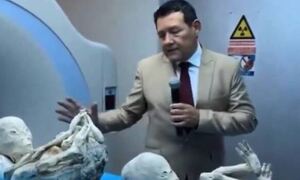Fireplaces and stoves are not so innocent

Pulmonologists are sounding the alarm, for the use of fireplaces and stoves as a mean of heating in winter, since it is proved that they are now one of the main causes of Chronic Obstructive Pulmonary Disease (COPD).
Indeed, a large European study (ERS COPD Audit study), involving 16,000 patients, including from Greece, demonstrated that 7% of people with COPD will definitely be hospitalized because of an exacerbation and will die in three months.
According to pulmonologists, the risk increases even more, among others due to the use of these heating means, because of the debility of oil supply, due to the crisis.
Especially in large urban centers, has been observed since early November, that the air quality is deteriorating, especially in the evening.
Indeed, this phenomenon is more pronounced in conditions of atmospheric stability (apnea - development of the phenomenon of temperature inversion).
For their part, chemists indicate that the accumulation of pollutants caused in nighttime, the morning, (under the effects of solar radiation), allows the chemical interactions between them, which can lead to the formation of secondary pollutants, even more dangerous.
COPD is responsible each year for more than three million deaths in the world, while the World Health Organization has classified COPD as one of the 5 most dangerous diseases of the new millennium, arguing that it is the fifth leading cause of death worldwide and will climb to 3rd place until 2020.
How COPD works
According to the coordinators of the group of Greek COPD Respiratory Society, Mr. Nicholas Tzanakis and George Chilas, COPD is a silent killer because it obstructs the bronchi (the airways), and literally destroys lung tissue. These lesions, from a point and then, are irreversible.
Unfortunately, only after destroyed the 50-60% of the lung, the patient begins to have serious symptoms and 2-3 worsening crises per year; these crises often lead to hospitalization.
If the patient continues to ignore the annoying symptoms of cough, expectoration and shortness of breath (dyspnea) then gives space to the disease to take a most serious form.
In this form, the patient is unable to do everyday household chores, to sleep, to participate in family activities and have sex life.
Finally, he must be located in a wheelchair and to live at home, totally dependent on his family and the oxygen uptake, for 24 hours a day.
Source: onmed.gr













